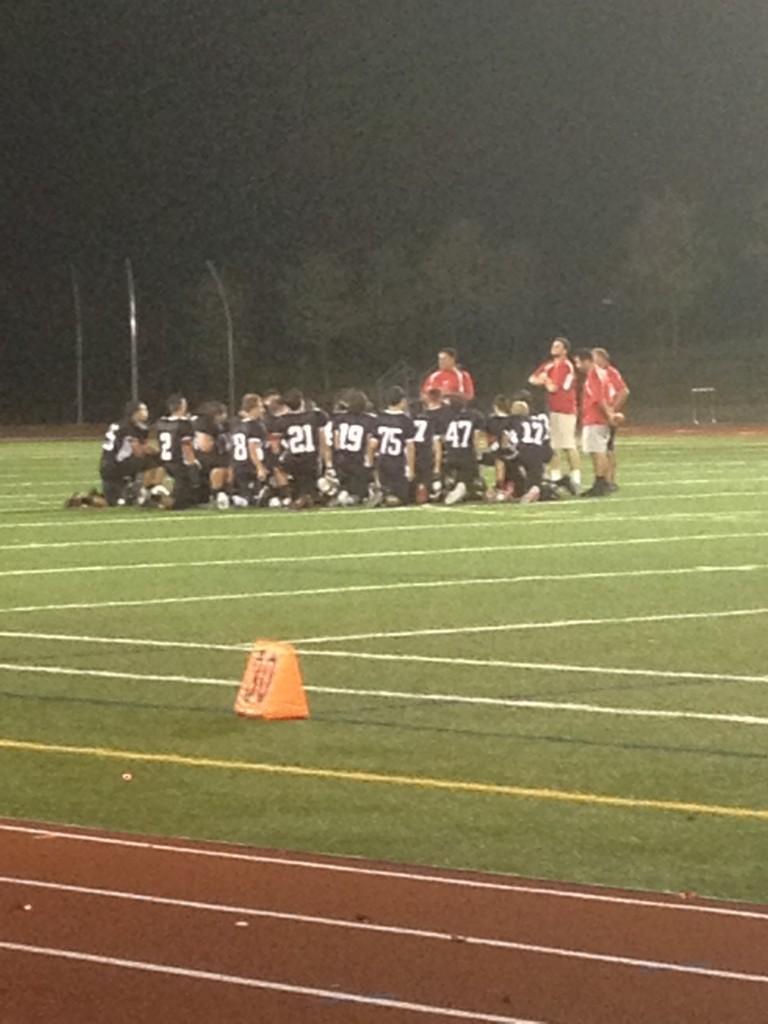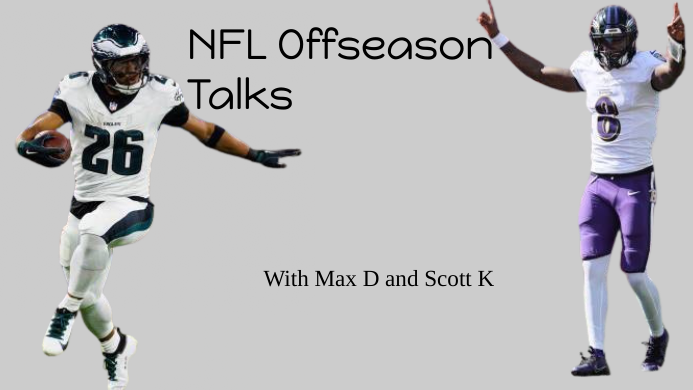Life lessons through sports
September 12, 2013
Teens learn many life lessons through sports: problem solving, hard work and friendship. Experience with teen sports leads to a great ability to negotiate future careers and social interactions.
Problem solving is more than a book of math problems. Sports help students to visualize success and handle defeat.
Freshman football player Anthony Sparacino said, “I’ve learned how to solve problems a lot quicker because if I don’t it could affect my team in a negative way. Also, I’ve learned how to work with a team and others to achieve a common goal.”
In the article “Game of life: Lessons We Learn from Sports” Flip Saunders, former NBA head coach, says “In athletic events, you go through good times and bad, often in the span of two hours. Do you have composure to settle yourself down, or do you totally lose it and get thrown out of the game, which hurts both you and your team? All of that on-court experience has a real effect on how you deal with real-life situations.”
Hard work at practice can really be stressful but can pay off during the games and in future projects.
“My hard work at practice pays off in games because I know what I need to do to be successful,” Sparacino said. To be able to work together everyone on the team must sacrifice personal wants for team needs. “Team bonding is important because we get to know who we will be working with and what others can handle and can’t. We see how they react under stress. We also get more comfortable and feel closer.”
In the “Game of Life” article Paige Mcpherson, 2012 Olympian, says, “Sports give you a chance to really see and understand who you are and what you are capable of. There have been times when I’ve wanted to give up, when I’ve wondered if it’s worth the sacrifice, but those moments of victory make it worthwhile.” This type of goal-setting and achievement is what employers look for in a candidate.
Joining a sports team can improve the ability to make friends and can boost self-esteem.
Being part of an athletic team is a good opportunity to meet new people. An important prerequisite for friendships is having common traits or ideals. Teammates have several similarities with one another. They have a common desire to play their sport, work together to achieve a common goal, and spend a lot of time practicing with one another. These similarities between teammates can lead to friendships. Being part of a team can be a good way to meet friends.
“A quote my coach told our team is, ‘You won’t remember the events that have happened or any of the details, but one thing you will remember is all the people you’ve met and all the great bonds you’ve formed,’” Sparacino added.
Junior Ryan Beckwith has been on the baseball team since his freshman year. “A life lesson I’ve learned in sports is that winning is not everything and you’re eventually going to lose some games,” Beckwith said.
“When you’re in the final moments of a game, the things you worked on in practice come back to you and you’re able to make that play in the game,” Beckwith added
A good coach can help students through difficult decisions beyond the team sport. “Something my coach has said that I’ve remembered is ‘When you fall down, always get back up and fight harder than before and never give up,’” Beckwith added.
Nicole Radziszewski, who researched the article “Game of Life,” reported that, in 2005, 89 percent of adults who participated in sports reported a life satisfaction of at least 7 on a scale of 1 to 10, compared with only 75 percent of nonparticipants.
Volleyball coach Barbara Ferguson said, “Give your best. Learn from your mistakes, and never give up,” Good communication, giving directions, analyzing a problem, and problem solving is what Mrs. Ferguson looks for in a good leader.
It is important to have a bond, and communication skills, or something may be interpreted the wrong way. “Always look for the good,” said Ferguson. “Bad attitude hurts the team. You want to go up and not down.”
In the article “Game of Life: Lessons We Learn from Sports” Steve Leadley is a former baseball coach who worked with many high school students in New Jersey. “The real value of athletics is not in the ends,” Leadley explained, “but in the means. We should encourage our children to play sports not in the desperate hope that they may one day turn pro, but due to the values, habits, and life-lessons that are endemic in athletics.”






